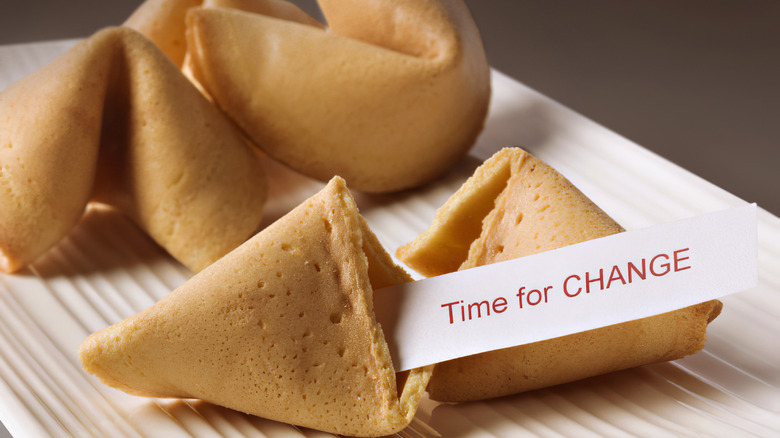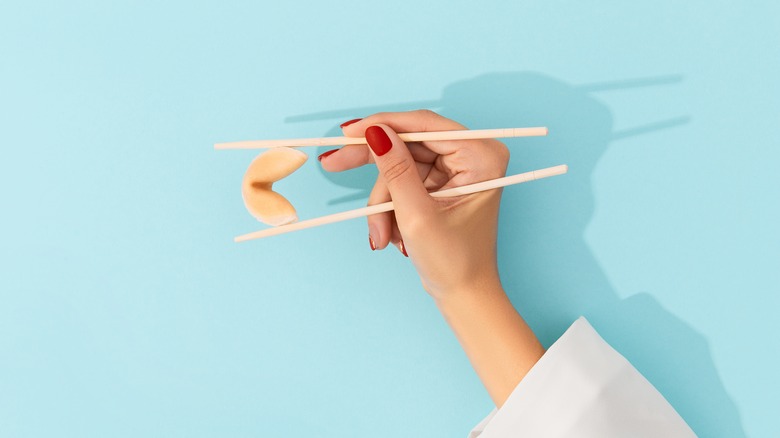Why Fortune Cookies Are Handed Out In Chinese Food Deliveries
Nestled in between your order of General Tso's Chicken and egg rolls is that nifty little cookie in a plastic wrapper. It's crispy, it tastes like vanilla, and it literally has your lucky numbers inside. The fortune cookie is a staple of Chinese takeout, with its crunchy shell hiding a little piece of paper that offers you vague, yet mystical-sounding advice or a wise saying. It's the modern-day Nostradamus!
The origins of the fortune cookie are surprisingly distant from Chinese culture, actually having roots in Japan. Kyoto, Japan, is regarded as the birthplace of the cookie (via History.com), where "fortune crackers" were sold in small confectionery shops. As the Japanese began to immigrate to America in the 19th and 20th centuries, it was only natural that the cookie, along with other examples of Japanese cuisine, was brought along. From there, the origins of who exactly popularized the American version of the cookie are muddled. Makoto Hagiwara's Japanese Tea Garden Restaurant in San Francisco, Seiichi Kito in Los Angeles' Little Tokyo, or Hong Kong Noodle Company founder David Jung (who is Chinese, unlike Hagiwara and Kito, who are Japanese) all claim to have invented the American fortune cookie (via Eat This, Not That!).
But wait a second. If fortune cookies are Japanese in origin, why exactly do we get them in our Chinese food? The answer lies in an unfortunate event during World War II-era America and the treatment of Japanese citizens.
The Chinese adopted it from the Japanese
As any historian of America during World War II could tell you, the December 7, 1941, Japanese attack on Pearl Harbor heightened fear and discrimination against Japanese Americans. Fueled by rumors and hysteria, the American people mistakenly viewed the Japanese as traitors, to the point that the United States government under President Franklin Roosevelt signed Executive Order 9066, which allowed the government to "evacuate" people deemed national threats further inland into internment camps (via FDR Library). As Japanese American citizens were forced from their homes and businesses, this left plenty of space open for other food and restaurant markets to move in.
The Chinese, who themselves had faced unfair and discriminatory U.S. policies, quickly began to take over the businesses that the Japanese were forced to leave behind. According to the National Museum of American History, Chinese businessmen adopted the practice of making fortune cookies and selling them to Chinese restaurants. By the time the war had ended and the Japanese were allowed to return home, the practice of Chinese fortune cookies had already been cemented.
Although the fortune cookie has roots in a different culture than one would expect, the expectation of getting your fortune told makes Chinese takeout as appealing as the food itself.

